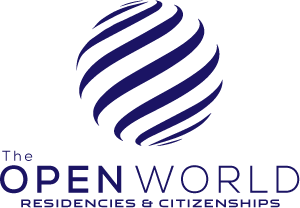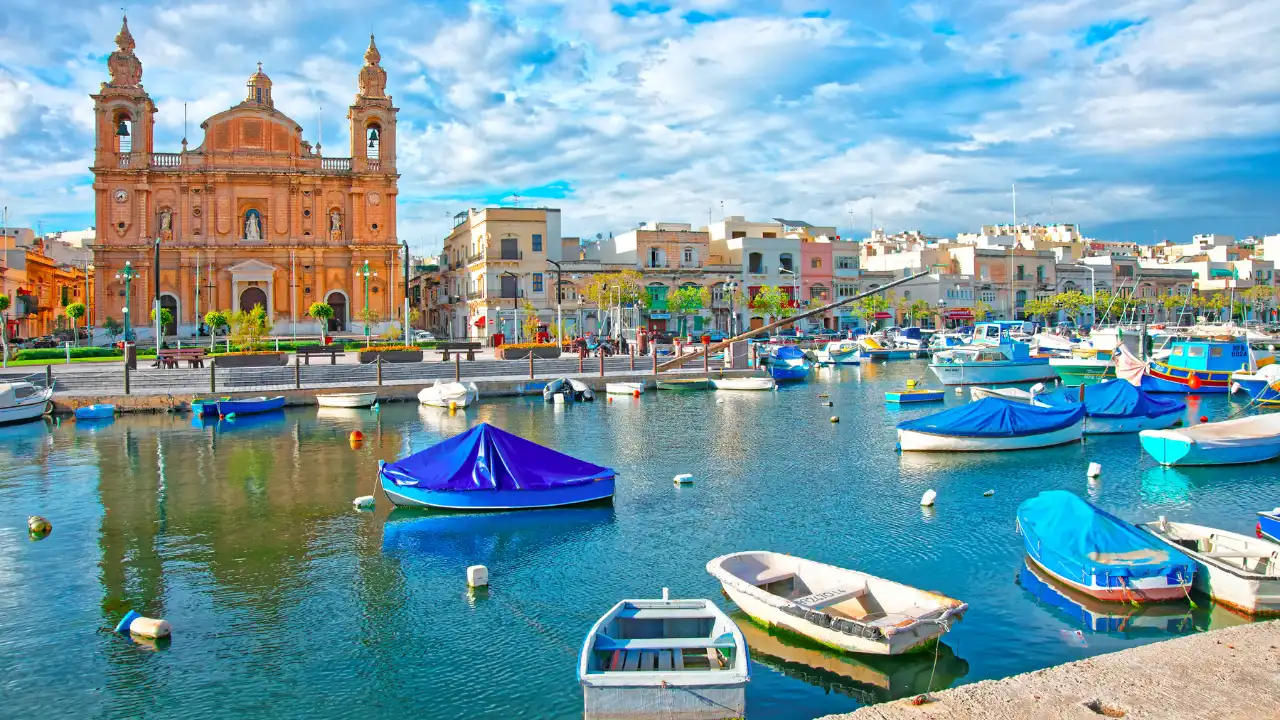Dreaming of a European lifestyle while advancing your career? Malta, with its growing economy, English-speaking workforce, and Mediterranean charm, has become a top destination for professionals from the UAE. Whether you’re in tech, hospitality, finance, or remote work, Malta offers multiple routes to legally live and work on the island.
But before packing your bags, it’s important to understand the different types of work permits, eligibility rules, and application steps involved, especially if you’re applying from Dubai or the UAE.
How to Get Work Permit for Malta
To get a Malta work permit, you must first secure a job offer from a registered Maltese employer. Once you have that, your employer applies for an employment license, and you then submit a Single Permit application, which combines both residence and work permissions. For skilled workers, Malta offers fast-track options like the Key Employee Initiative (KEI).
Do You Need a Visa or Work Permit to Work in Malta?
Yes, if you’re a UAE resident and a non-EU national, you’ll need a work permit and possibly a visa to legally work in Malta. EU/EEA citizens don’t require a permit, but for most people from Dubai or elsewhere in the UAE, applying for a Single Permit or other authorized visa is mandatory.
I still remember when my friend, a software developer from Dubai, got an offer from a fintech firm in Valletta. He assumed he could just “land and work.” But when he showed up at the airport without the right paperwork, he was sent back, frustrated and embarrassed. It wasn’t until he understood the permit structure and applied through the right channels that things started moving forward smoothly.
Understanding these requirements from the start can save you weeks — if not months — of delays.
Malta Digital Nomad and Remote Work Visa Options
Malta offers a dedicated route for remote workers and freelancers through the Nomad Residence Permit. This visa is designed for non-EU nationals who work remotely for companies outside Malta and want to live on the island for up to one year, with renewal options.
To qualify, applicants must:
- Earn a minimum gross monthly income of €3,500
- Work for a foreign employer, freelance clients abroad, or operate a remote business
- Provide proof of accommodation, health insurance, and a clean police record
This option is increasingly popular among UAE-based digital professionals, especially those in tech, marketing, and consulting, looking for a European base without switching employers.
Who Can Apply for a Work Permit in Malta?
Anyone who is a non-EU national with a valid job offer from a Maltese employer can apply for a Malta work permit. Applicants from Dubai and the wider UAE region often qualify under one of the following categories:
- Skilled professionals with job contracts in industries such as IT, finance, healthcare, engineering, or hospitality
- Entrepreneurs establishing a company or investing in a Maltese business
- Intra-company transferees relocating from a parent company in the UAE to a branch in Malta
- Graduates and students transitioning to full-time roles in Malta after studying
- Remote workers applying for the Nomad Residence Permit
- Seasonal workers for short-term contracts, especially in tourism-related sectors
Eligibility typically requires proof of employment, qualifications, and legal residence status in your country of application.
Malta Work Permit Requirements
To apply for a Malta work permit, applicants must meet several documentation and eligibility criteria. The following are standard requirements for most work permit types, particularly the Single Permit:
Core Requirements:
- Valid job offer from a registered employer in Malta
- Employment license issued by Jobsplus, Malta’s public employment service
- Completed Single Permit application form
- Valid passport with at least 6 months’ validity
- Passport-sized photo (recent, biometric standards)
- Updated CV and certified educational qualifications
- Employment contract or letter of engagement
- Proof of accommodation in Malta
- Health insurance covering the full duration of stay
- Police clearance certificate issued within the past 6 months
- Flight itinerary (often requested during visa processing)
Labour Market Test (LMT)
For most applications, the employer must prove that the position could not be filled by a Maltese or EU national. This involves advertising the job locally and submitting a vacancy report to Jobsplus.
These requirements may vary slightly depending on the type of permit (e.g., KEI, Blue Card) or if you’re applying from within Malta or abroad.
Step-by-Step Application Process
Applying for a Malta work permit involves coordination between the employer and the applicant. Below is a simplified overview of the standard process, especially for those applying from Dubai or other non-EU countries:
1. Secure a Job Offer
The process begins with a formal employment offer from a Maltese company willing to sponsor your work permit.
2. Employer Applies for Employment License
The employer submits an application to Jobsplus to obtain an employment license. This may include a Labour Market Test to prove that no suitable EU candidates are available.
3. Single Permit Application
Once the employment license is approved, you submit a Single Permit application to Identità, Malta’s identity and immigration agency. This can be done through a Maltese embassy or directly online in some cases.
4. Gather and Submit Required Documents
You will need to provide a full documentation pack, including passport, job contract, accommodation proof, police certificate, health insurance, and more.
5. Biometric Data and Interview (if requested)
In some cases, biometric data or an in-person appointment may be required either in Malta or at the nearest consulate.
6. Visa Issuance (if applicable)
If you’re applying from outside the Schengen zone, you may need a Type D national visa to enter Malta and finalise your work permit process.
7. Receive Residence and Work Card
Once approved, you’ll receive a residence card that acts as your legal permission to live and work in Malta for the duration of your contract.
Key Employee Initiative (KEI) – Fast Track Option
The Key Employee Initiative (KEI) is a streamlined work and residence permit process designed for highly skilled non-EU professionals in Malta’s key industries.
Eligibility Criteria:
To qualify for KEI, you must:
- Hold a specialist, managerial, or technical role
- Earn a minimum annual gross salary of €30,000
- Provide proof of relevant qualifications or experience
- Submit a signed employment contract valid for at least one year
- Ensure your application includes all supporting documents in the required format
Processing Time:
One of KEI’s main advantages is speed:
Applications are processed within 5 working days of submission, provided the documents are complete and correct.
Ideal For:
KEI is widely used by employers in finance, iGaming, software development, blockchain, and other tech sectors. It’s particularly attractive for UAE professionals who meet the salary threshold and are looking for fast relocation to Malta without lengthy waiting periods.
Costs and Fees Involved in a Malta Work Permit
Understanding the financial requirements is crucial when planning to work in Malta. Below is a breakdown of the primary fees associated with obtaining a work permit:
1. Single Work Permit Application Fee
The standard fee for a Single Work Permit application is €280.50. This permit combines both the residence and work authorisation for non-EU nationals.
2. Employment License Fee
Employers are required to obtain an employment license for the prospective employee. The fee for this license is €150.
3. Type D National Visa Fee
For those applying from outside Malta, a Type D national visa is necessary. The application fee for this visa is €100.
4. Key Employee Initiative (KEI) Application Fee
Applicants eligible for the KEI, which offers a fast-track process, are subject to a fee of €300.
5. Seasonal Work Permit Fee
For employment durations less than six months, the application fee is €27.50.
6. Additional Costs
Applicants should also anticipate additional expenses, which may include:
- Document translation and notarization
- Medical examinations
- Health insurance premiums
- Courier and administrative services
These supplementary costs can vary based on individual circumstances and service providers.
Processing Time for Each Type of Work Permit
The time it takes to receive a Malta work permit varies depending on the type of permit and the accuracy of the submitted documentation. Below are the general timelines:
1. Single Permit
The standard Single Work Permit takes approximately 2 to 3 months to process. This includes time for employer approvals, document verification, and biometric appointments if required.
2. Key Employee Initiative (KEI)
For eligible applicants, the KEI provides a significantly faster turnaround. Applications are processed within 5 working days, assuming all required documents are correct and complete.
3. EU Blue Card
Processing for the EU Blue Card typically ranges between 30 to 80 days, depending on the applicant’s qualifications and whether additional verifications are needed.
4. Seasonal Work Permit
These permits are usually processed in under one month, making them viable for short-term employment in sectors like tourism and agriculture.
5. Type D Visa
For applicants outside the Schengen area, the additional Type D visa may take 2 to 4 weeks to be issued after the permit approval.
Factors That May Delay Processing:
- Incomplete documentation
- Missing signatures or translations
- Delays in employer-side paperwork
- Labour Market Test requirement and outcome
Timely and complete submissions can greatly improve your chances of a smooth and efficient approval process.
Can You Bring Family Members With You?
Yes, most non-EU nationals granted a Single Work Permit or other long-stay work authorization in Malta can apply to bring their family members through a family reunification process.
Eligible Family Members:
- Spouse or legally recognised partner
- Children under the age of 18
- Dependent adult children (in special cases)
Conditions:
- The main applicant must show proof of adequate income, housing, and health insurance for their dependents.
- In most cases, the primary permit holder must have already lived in Malta for a minimum of one year before applying for reunification, though this condition may be waived for KEI or Blue Card holders.
Right to Work:
Spouses of work permit holders may be granted the right to work in Malta, but they often need to apply for separate work authorisation.
Family reunification policies are designed to support long-term migration and integration, but each case is assessed individually by Malta’s immigration authorities.
Permit Validity, Renewal, and Extensions
Malta’s work permits are generally issued for one year initially, but they are renewable based on continued employment and compliance with immigration laws.
Permit Validity:
- Single Work Permit: Valid for 1 year, renewable annually
- Key Employee Initiative (KEI): Also valid for 1 year, with streamlined renewal process
- EU Blue Card: Issued for up to 4 years, depending on the job contract length
- Seasonal Work Permit: Typically valid for 6 months or less
Renewal Requirements:
To renew a permit, the applicant must:
- Still be employed by the same or a new approved employer
- Submit a renewal application at least 45 days before expiry
- Provide updated employment contracts, insurance proof, and accommodation documents
- Pay the renewal fee (generally the same as the original permit fee)
Long-Term Residence:
After 5 years of continuous legal residence, non-EU nationals may apply for long-term resident status, granting greater mobility and less bureaucracy.
Timely renewal is crucial — working on an expired permit is a legal violation and may result in penalties or deportation.
Working in Malta from Dubai: What UAE Residents Should Know
If you’re based in Dubai or elsewhere in the UAE, there are a few unique considerations when applying for a Malta work permit:
1. Application Channel
Most UAE applicants will submit their work permit documentation through the Embassy of Malta in Abu Dhabi, or via authorised VFS Global centres in the region. This step may include biometric collection and visa issuance.
2. Document Authentication
Some documents, such as educational certificates or police clearance certificates from the UAE, may need to be attested by the UAE Ministry of Foreign Affairs and then legalised by the Maltese authorities.
3. Police Clearance
A valid UAE police clearance certificate, issued within the last 6 months, is typically required. Ensure it includes both English and Arabic versions, or have it officially translated.
4. Health Insurance
Applicants must purchase a valid private health insurance plan that meets Maltese immigration standards. UAE-based insurers that offer Schengen-compliant coverage are widely accepted.
5. Flight and Accommodation Proof
When applying from Dubai, it’s essential to provide confirmed or provisional documentation for:
- Flight itinerary to Malta
- Temporary or long-term housing arrangement (hotel booking, lease, or host letter)
These steps ensure that UAE-based professionals meet Malta’s legal and procedural standards without delays or rejections.
Mistakes to Avoid When Applying
Even qualified applicants can face delays—or outright rejection—due to avoidable errors. Here are some of the most common mistakes made during the Malta work permit process:
1. Submitting Incomplete Documentation
Missing even one required document, such as a signed contract, passport copy, or proof of accommodation, can result in immediate rejection or processing delays.
2. Using Unofficial or Unverified Job Offers
Some applicants fall for offers from unregistered or non-compliant employers. Always verify that the Maltese company is licensed and able to sponsor foreign workers through Jobsplus.
3. Failing the Labour Market Test
In cases where the Labour Market Test applies, employers must prove that no EU/EEA candidate was available. Failing to meet this condition can lead to a denied employment license.
4. Last-Minute Submissions
Renewals and visa applications submitted too close to expiration dates can disrupt your legal status in Malta. Always apply at least 45–60 days in advance.
5. Incorrect Translations or Missing Legalisation
Non-English documents, including certificates or bank statements, must be properly translated and legalised. Unofficial translations are not accepted.
6. Relying on Outdated Information
Immigration rules change frequently. Many applicants use outdated blog posts or unofficial forums for guidance. Always check the latest updates from Identità and Jobsplus.
Avoiding these pitfalls not only increases your approval chances, it can also save you time, money, and unnecessary stress.
Alternatives: Freelance, Startup, or Investment Visas
If you don’t have a traditional job offer but still want to live and work in Malta legally, there are several alternative visa pathways available for entrepreneurs, freelancers, and investors:
1. Nomad Residence Permit
Ideal for freelancers or remote workers employed by non-Maltese companies. Applicants must show:
- Monthly income of at least €3,500
- Proof of remote work setup
- Health insurance and accommodation in Malta
This permit is valid for 1 year and is renewable.
2. Start-Up Residence Programme
Geared toward non-EU entrepreneurs aiming to launch a business in Malta. You must:
- Present a viable business plan
- Register a Maltese entity
- Commit a minimum investment (typically €25,000 or more, depending on the structure)
This program may include residency for the founder and key team members.
3. Long-Term Investment Residency
For high-net-worth individuals, Malta offers options like the Malta Permanent Residence Programme (MPRP) or Exceptional Investment Naturalisation, though these are not traditional work permits. They require:
- Significant real estate investment or government contribution
- Clean background and source of wealth documentation
These pathways allow professionals from Dubai and other regions to live legally in Malta without being tied to a single employer, ideal for those who are self-employed or looking for long-term flexibility.
Let The Open World Guide You
At The Open World, we specialise in helping UAE-based professionals, entrepreneurs, and remote workers navigate the Malta work permit process with clarity and confidence. From selecting the right permit to preparing your documents and submitting a compliant application, we’re with you at every step.
Based in Dubai, UAE, our team has direct experience with Malta’s immigration system and embassy processes.
Start your Malta journey the right way. Book a free consultation today.
Conclusion: Making Your Move to Malta
Malta offers one of the most accessible and rewarding work permit systems in the EU, especially for professionals, entrepreneurs, and remote workers from the UAE. Whether you’re applying for a Single Permit, Key Employee Initiative, or exploring options like the Nomad Residence Permit, the key is preparation.
Understanding permit types, aligning with a registered employer, and submitting a complete, well-documented application can save you months of delay and frustration. From employment licensing to visa issuance, every step plays a crucial role in your successful relocation.
If you’re serious about making the move from Dubai to Malta, now is the time to get started. With the right information, supporting documents, and professional guidance where needed, you can transition smoothly into Malta’s thriving job market and lifestyle.
FAQs About Malta Work Permits
Q1: Can I change jobs in Malta with the same work permit?
No. If you change employers, you must apply for a new Single Permit. The new employer must go through the licensing process again with Jobsplus.
Q2: Can I apply for a Malta work permit while already in Malta on a tourist visa?
Yes, but it’s not recommended. While technically allowed in some cases, applying from within Malta on a short-stay visa may delay processing or complicate your legal status.
Q3: Is Maltese language proficiency required?
No. English is one of Malta’s official languages, and most employers operate in English. However, basic Maltese can be helpful for integration in local communities or government roles.
Q4: What happens if my application is rejected?
You can appeal the decision or reapply with corrected documents. It’s important to understand the exact reason for rejection and seek professional advice if needed.
Q5: Do UAE residents need to go through a medical exam?
Not always, but some employers or visa categories may require basic health screening or confirmation of non-contagious status. This can be done in Dubai through accredited clinics.




